The Fellowship in Endocrinology, Diabetes, and Metabolism at the University of Iowa provides trainees with the education and experience required to function as competent specialists, educators, and scientists. Fellows are involved in a variety of clinical and scholarly activities to guide their training. The curriculum and evaluations incorporate the competency tenets of the American Council for Graduate Medical Education (ACGME): medical knowledge, patient care, practice-based learning and improvement, systems-based practice, professionalism, and interpersonal and communication skills.
Clinical Training
Clinical training involves inpatient endocrinology consult rotations, general endocrinology and diabetes continuity of care (COC) clinics, and additional subspecialty clinics to supplement the COC experience. These subspecialty clinics take place within the Division of Endocrinology or through other divisions and departments, including:
- High Risk Obstetrics
- Lipid Clinics
- Male Infertility Clinics
- Reproductive Endocrinology Clinics
- Metabolic Bone Disease Clinics
- Obesity Clinic
- Thyroid US and FNA Clinics
- Neuroendocrine Tumor Clinics
- Pediatric Endocrinology Clinics
- Renal Stone Clinics
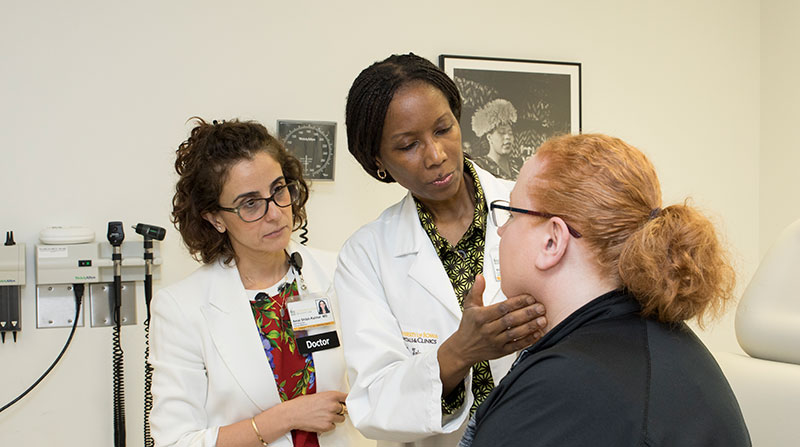
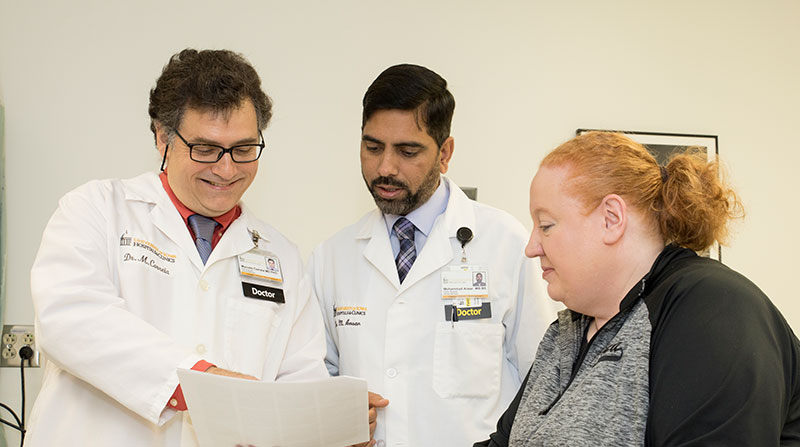
Didactics
Several didactic sessions are offered every week. These aim to present the fellows with knowledge related to endocrinology and to teach them how to prepare and deliver their own presentations.
Weekly Frontiers in Diabetes, Obesity, and Metabolism Seminar
Presented by basic and clinical researchers with expertise in the fields of obesity, diabetes, and the metabolic syndrome.
Weekly Fellow Didactic Curriculum Lecture Series
Covers core endocrine topics presented by endocrinology faculty members and members of other departments and divisions. Topics discussed include basic endocrine physiology and pathology, clinical endocrinology, nutrition, and endocrine testing.
Weekly Clinical Case Discussions
Fellows present a variety of cases on a rotating basis. Following each case presentation, the presenting fellow leads a discussion among the other fellows, faculty, and any residents and students currently rotating on the service.
Monthly Endocrine Journal Club
Presented by the fellows on a rotating basis with faculty mentorship.
Weekly Endocrine Grand Rounds
Presented by endocrine faculty and fellows on a rotating basis, faculty from other divisions and departments, and visiting professors. Fellows are mentored by a faculty member who assists them with topic selection and preparation of the presentation.
Biweekly Tumor Board
Attended by endocrine staff and fellows, surgical oncologists, otolaryngologists involved in thyroid and parathyroid surgery, radiologists and pathologists. During these sessions, patients with endocrine malignancies are reviewed and discussed, and treatment recommendations are formulated.
Weekly Interdisciplinary Fellowship Conference
Lectures are organized by the core Internal Medicine residency program for all Internal Medicine fellows from all specialties. They include discussions of core topics required by ACGME, additional topics of interest to the fellows, and informal discussions with the department chair.
Monthly Fellow Advancement Conference
On a rotating basis, this conference covers topics related to business, communication skills, and wellness.
Procedural Training
Procedural training will lead to demonstrated excellence in a variety of procedures, including those required by ACGME and ABIM:
- Insulin pumps
- Continuous glucose monitoring systems (CGMS)
- Dual-energy X-ray absorptiometry (DXA)
- Thyroid ultrasound
- Ultrasound-guided fine needle aspiration
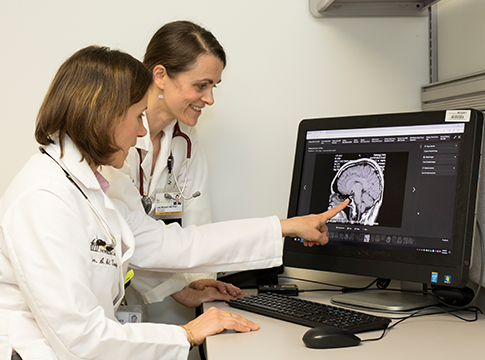
Quality Improvement Training
All fellows participate in quality improvement training. All fellows complete a series of online QI modules, leading to a certificate in quality improvement. In addition, clinical fellows complete a QI project under mentor supervision and are expected to present results from their projects at local, regional or national meetings.
Winners of ENDO19 and ENDO20 Abstract Awards
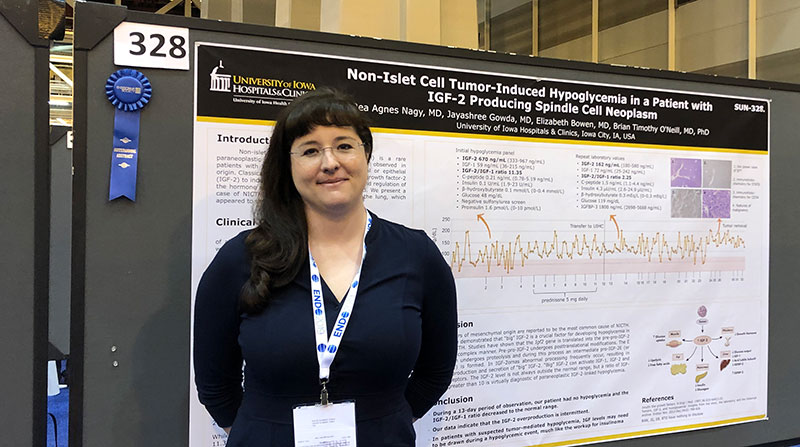
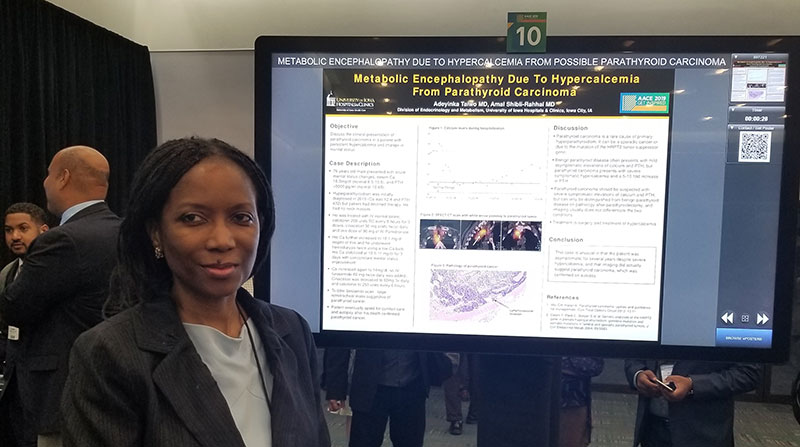
Research Training and Scholarship
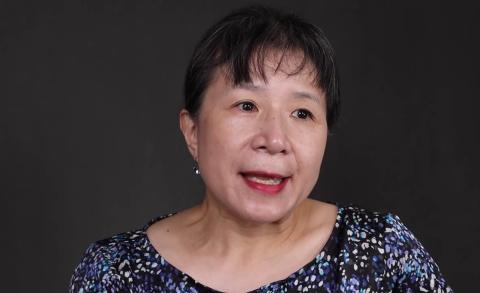
All fellows are required to participate in scholarship, but the requirements vary between clinical and research fellows.
Research Fellowships
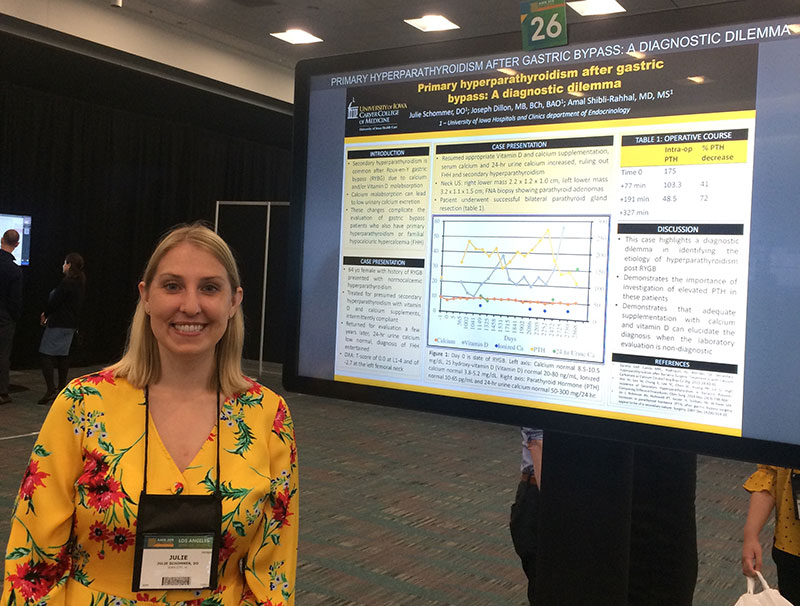 Research fellowships are three years long, with a major emphasis on basic, translational, or clinical research training. Under close mentorship, research fellows participate in a rigorous and well-defined program that will prepare them for a career in academic research. The successful research fellow will write grant proposals in pursuit of funding, present their research at local, regional, and national meetings, and prepare and publish original research papers. The research program that the fellow participates in will be relevant to endocrinology and metabolism and can be based in the Division of Endocrinology or in other departments or divisions.
Research fellowships are three years long, with a major emphasis on basic, translational, or clinical research training. Under close mentorship, research fellows participate in a rigorous and well-defined program that will prepare them for a career in academic research. The successful research fellow will write grant proposals in pursuit of funding, present their research at local, regional, and national meetings, and prepare and publish original research papers. The research program that the fellow participates in will be relevant to endocrinology and metabolism and can be based in the Division of Endocrinology or in other departments or divisions.
Clinical Fellowships
Clinical fellowships are two or three years long, preparing the fellow for a career as a clinician. Clinical fellows are not required to conduct formal research, but are still expected to participate in scholarly activities. These scholarly activities are more broadly defined and can encompass basic or clinical research, outcome research, literature reviews, description of novel clinical findings in case reports and series, and development and assessment of rigorous practice improvement protocols. The fellow will carry out the scholarly activity with the goal of publishing at least one manuscript in a peer-reviewed journal or presenting at a national professional meeting.
The Fraternal Order of Eagles Diabetes Research Center has received a $2.02M T32 grant.